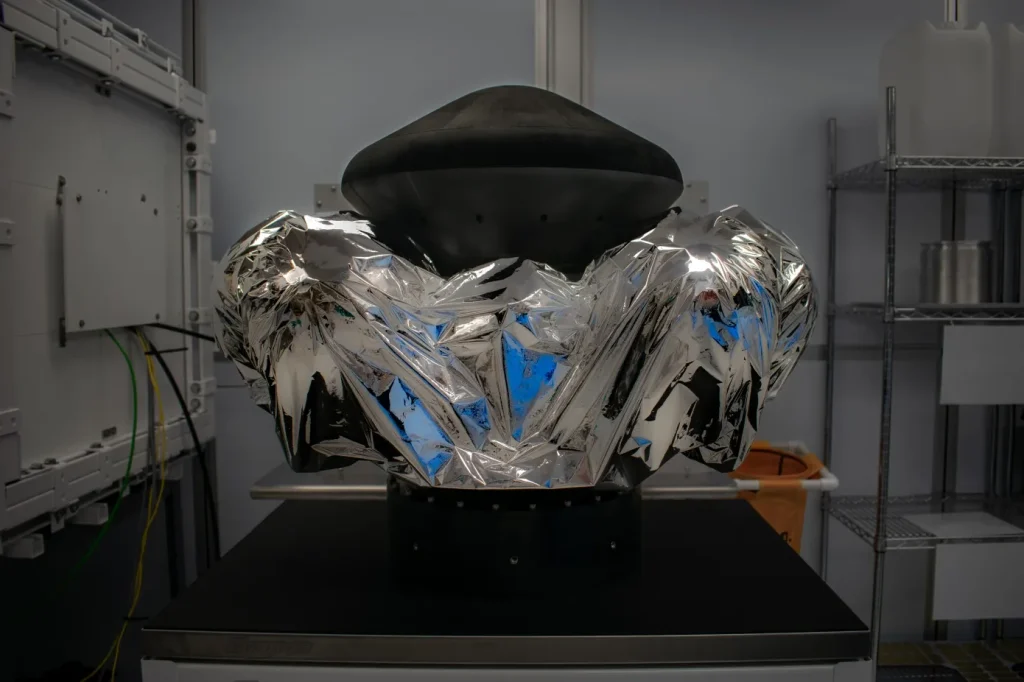Inversion Space was founded in 2021 by Justin Fiaschetti and Austin Briggs. Both have backgrounds in aerospace engineering from previous stints at prominent space companies like SpaceX and ABL Space Systems. Based in Los Angeles, the company aims to transform space into a viable transportation layer for Earth by developing low-cost, high-cadence return vehicles capable of bringing cargo back from space to Earth. Delivering goods from space to your doorstep is a bit of a stretch, but their innovation can have a definitive impact on specific areas of logistics.
Space Freight First
The problem of bringing materials, whether satellites, rockets, space stations, or future delivery systems, into space, is not getting them there but getting them back. The more we send into space that we can’t bring back, the more space debris there is. Space debris can pose a danger to satellites or even spacecraft carrying people. Inversion Space is developing a delivery system with capsules that will enable them to deliver materials to space and then return the capsules to Earth. This technology will have a huge impact on the efficiency of future space freight operations. It can be applied to supply space stations, but it could also be used, for example, to return materials from future mining operations on planets, asteroids, or moons.
Implications for Global Logistics
Inversion Space’s primary innovation is its development of autonomous re-entry vehicles, such as the Ray and Arc capsules. The Ray capsule, expected to launch in a test mission in 2024, serves as a technology development vehicle with a mission duration of four weeks. The more advanced Arc capsule, planned for deployment by 2026, is designed to enable rapid global delivery, support scientific experiments, and resupply space stations. This capability will benefit both commercial and government logistics operations.
This system will enable rapid global delivery by storing materials in capsules in space and delivering them anywhere on Earth in under an hour upon request. The capsules will re-enter the Earth’s atmosphere at high speeds, descend to their final destination and softly land using a parachute. It would be perfect for delivering medicine or other urgent supplies to remote locations fast. However nice it would be to deliver everything anywhere on the globe within the hour, this system is unsuitable for everyday e-commerce deliveries.
Inversion Space’s approach to making space a transportation layer for Earth could thus have far-reaching impacts, not only in how goods are transported but also in how businesses and governments operate globally. For more information, check out the Inversion Space website.
A picture of the Ray capsule (image credit: Inversion Space)







